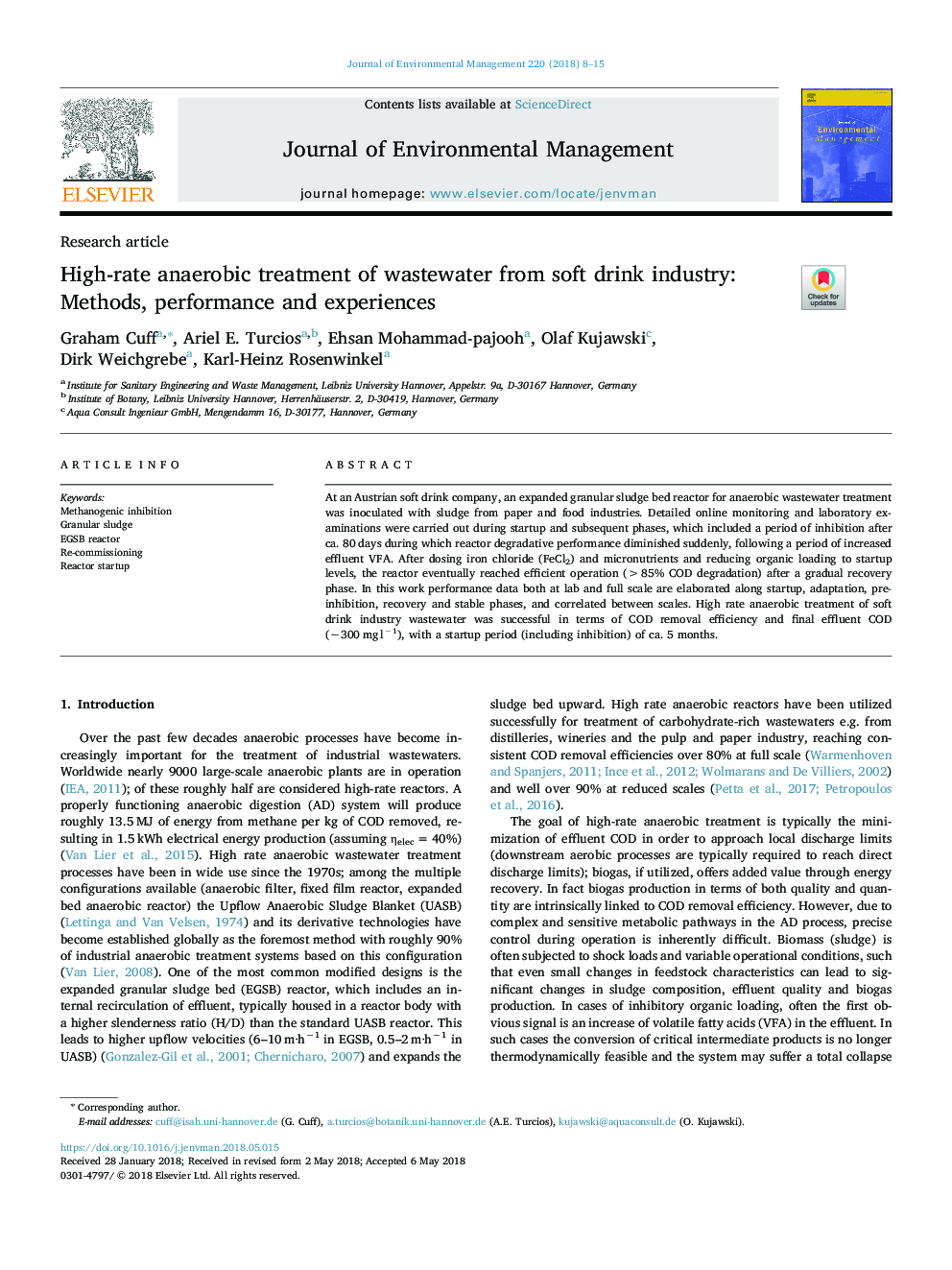| Article ID | Journal | Published Year | Pages | File Type |
|---|---|---|---|---|
| 7476378 | Journal of Environmental Management | 2018 | 8 Pages |
Abstract
At an Austrian soft drink company, an expanded granular sludge bed reactor for anaerobic wastewater treatment was inoculated with sludge from paper and food industries. Detailed online monitoring and laboratory examinations were carried out during startup and subsequent phases, which included a period of inhibition after ca. 80 days during which reactor degradative performance diminished suddenly, following a period of increased effluent VFA. After dosing iron chloride (FeCl2) and micronutrients and reducing organic loading to startup levels, the reactor eventually reached efficient operation (>85% COD degradation) after a gradual recovery phase. In this work performance data both at lab and full scale are elaborated along startup, adaptation, pre-inhibition, recovery and stable phases, and correlated between scales. High rate anaerobic treatment of soft drink industry wastewater was successful in terms of COD removal efficiency and final effluent COD (â¼300â¯mgâ¯lâ1), with a startup period (including inhibition) of ca. 5 months.
Related Topics
Physical Sciences and Engineering
Energy
Renewable Energy, Sustainability and the Environment
Authors
Graham Cuff, Ariel E. Turcios, Ehsan Mohammad-pajooh, Olaf Kujawski, Dirk Weichgrebe, Karl-Heinz Rosenwinkel,
